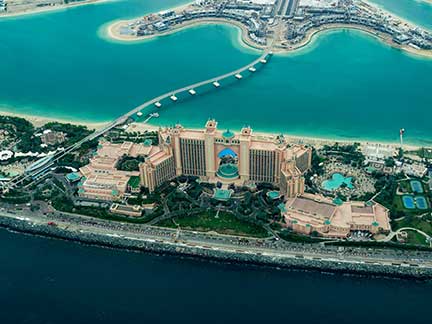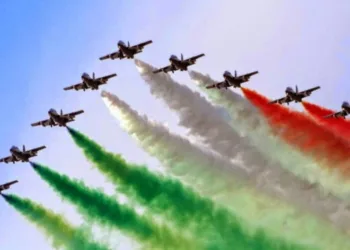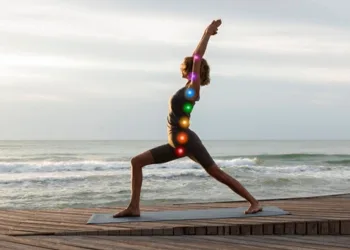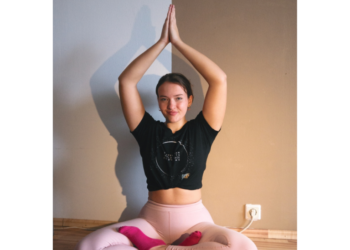The UAE moves away from oil and trade to manufacturing and culture, making it attractive for immigrants
By Malavika Kodiyath
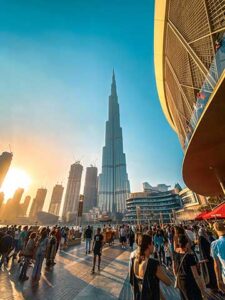
Indians comprise over 38 per cent of the United Arab Emirates population of over 38 lakh. But more than 5 lakh people had registered to return to India in mid-2020, according to an article in The National, an Abu Dhabi newspaper — mainly due to the financial crunch and job losses caused by the COVID-19 pandemic. The same article mentioned, however, that many of these expatriates leaving for India hoped to come back at some point, and that they expected the economy to get better soon. Those hopes were not misplaced. The UAE government’s new diversification policy holds great promise for the future of the economy.
The diversification of the UAE’s economy away from oil and real estate have been much discussed among business owners and employees alike. It has been so since the 2010s, when talk about the coveted Expo 2020 started. But the diversification has in fact been prompted emphatically by the pandemic-induced economic crisis. The government has eased many of its rules governing expatriates and their businesses.
An expat needed a UAE national sponsor but in 2020 the government decided to scrap that, offering 100 percent ownership to the expat starting or facilitating business here.
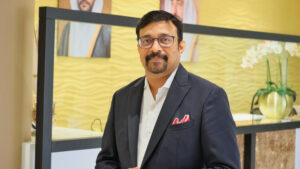
T.V. Ramesh, Chief Financial Officer of the Hamriyah Freezone, says, “The government has been supporting companies to come and set up their units here. Earlier, a lot of the commerce we had in the UAE was that of oil and trade, but trade is a floating kind of business due to which we are focusing more on manufacturing. And over 50 percent of these companies we have in the free zone are Indian-owned.”
I asked him why Indian manufacturers would consider the UAE cheaper than India. He replied, “In terms of labour, India is definitely cheaper, but for a more machine-oriented manufacturing, the UAE is the place to be. The easy availability of raw materials, superior machinery coupled with labour that is cheaper than in other developed countries make the UAE a very attractive destination for many factories and businesses.”
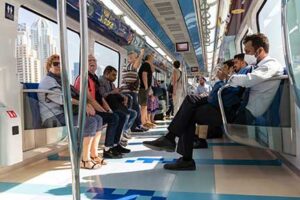
Manufacturing, he adds, “gives rise to other ancillary enterprises. In a free zone, you do not need a sponsor, as the name suggests, but now that privilege has been extended to the mainland too. Previously, in the mainland, an expat needed a UAE national as sponsor, but in 2020 the government decided to scrap that rule, offering 100 percent ownership to the expat starting or facilitating a business here. This, I believe, will attract more people. With this major change in policy, the economy is diversifying slowly. It is a gradual process, but the trend we are observing is that we are moving to be non-oil-centric.”
In terms of labour, India is definitely cheaper but for a more machine-oriented manufacturing, so the UAE is the place to be.” – T.V. Ramesh, CFO, Hamriyah Freezone
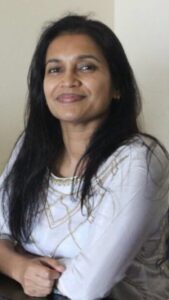
One of the most appreciated aspects of life in the UAE, among expatriates, is the safety and security the country provides. I spoke with Padmaja Nambiar, Managing Director of Juran Consultants, a decade-old IT company in Dubai. Arriving in the UAE during the 2007-2009 global recession, she worked for a couple of companies before starting her own firm in 2011. I hopped on a car ride to Sheikh Zayed Road with her while she spoke to me about the prospects of diversifying the economy and what it means for her business. “IT is a support industry, and with diversification, there surely will be more companies and people across the globe, and particularly from the Indian subcontinent, wanting to invest in the UAE,” she says. “In fact, diversification of economy in the UAE is a must. Not only will it sustain the existing expatriate population, it will also bring more people to the country. This would mean more opportunities for our businesses and products. I developed my edu-tech product with that in mind. The government has a strong vision of the direction in which they want to take the UAE, which aligns with the people who work here. And this, coupled with a strong security system, only accelerates the possibilities. As a single woman running a company in the UAE, I have never really had to worry about my safety. I think safety and security are some of the most integral attributes of any flourishing country, and the UAE has nailed that part.”
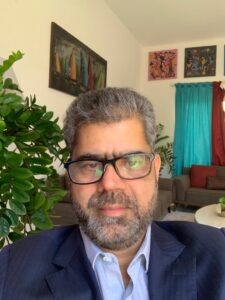
Joseph Varghese is Managing Director of TPM Williams, a nearly two-decade-old construction consultancy in the UAE. I asked him what he thought of the diversification in the economy, and the prospects for business in the country. “The UAE, until recently, focused on oil and real estate,” he says. “But right now, in the construction industry, the major challenge we face is increased supply with less demand. And therefore, the focus has been shifting to tourism, hospitality, and service-oriented sectors. This of course will help management businesses to flourish. However, there are still many vacant, unfurnished apartments and villas still waiting to be rented out or sold. There’s hope that with the increased focus on manufacturing more people will come here, because tourism alone cannot drive the economy. We need more foundational businesses to attract people to come and invest here for the longer term. With the new rules governing visas and ownership, the UAE is proving to be a business-friendly country, attracting people from the countries nearby. With the diversification strategy and Expo 2020 [now to be held in October 2021 due to COVID-19] we expect the UAE to thrive.”
The government has put in effort to cultivate a budding art scene. The swanky Dubai Design District, colloquially referred to as D3, is a prime example of this.
The diversification is not limited to manufacturing and tourism. The government has put effort into cultivating the budding art scene. The swanky Dubai Design District, colloquially referred to as D3, is a prime example of this. Brimming with urbane Instagrammable cafes and fashion boutiques, this place is a designer’s dream. Among the many new boutiques of upcoming designers located here, there are also corporate offices of Chanel, Prada, Hermès, and many more brands of this level. The appreciation of the people here is not limited to visits to these places, but also to the money they pump in. When I was at Alserkal Avenue [the art district], I saw people buying not one but several pieces of work each. The Louvre Abu Dhabi, a museum that houses magnificent ancient Egyptian artifacts as well as works by Claude Monet and Vincent Van Gogh, gives newer artists the opportunity to display their work, and also runs several workshops and courses on art. Artists are now given the UAE golden visa [for 10 years] that many prominent investors are also given. Along with actors Shah Rukh Khan and Sanjay Dutt, both of whom have been awarded the golden visa, most recently the Odia artist Mona Biswarupa Mohanty also received it.
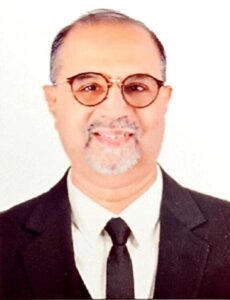
The pandemic also proved that the UAE shines in the health sector. The nation has already vaccinated 39.3 percent of its population which is over three times the percentage of the global population that is vaccinated. Dr Satish Krishnan, Senior Consultant and Head of Neurological Surgery, Al Qasimmi Hospital, Sharjah, under the Ministry of Health and Prevention (MoHAP) says, “The UAE has been great at containing COVID-19, with quick measures in place, and every patient was treated without any charge. The vaccines here so far have been free of cost for the residents, but now Abu Dhabi visit visa holders are also eligible for free vaccination.”
“The treatments here are great and affordable, and they are making the UAE a hub of health tourism,” adds Dr Krishnan. I asked him why, if the affordability and quality are better here, many Indians prefer to return to India for treatment. “One reason why many Indians might feel that way,” he says, “is because about 80 percent of people here live alone, and many prefer to be with their family who can support them through an illness. Compared with developed countries, with the same facilities that the UAE has, the cost here is more affordable, and many people do travel here to seek treatment. And for Indians, the UAE is closer and cheaper than Europe or the United States.”
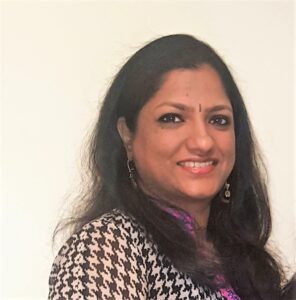
Sumitha Ayilliath, Vice President of the Indian People’s Forum, Dubai Chapter, is an English professor at the American College of Dubai. She explains that the education sector in the UAE, too, is booming. It has been attracting a lot of students, especially from the Indian subcontinent, and will continue to do so. She says, “The UAE is a melting pot of cultures, and has people from all over. Colleges in the UAE have seen great success, including the Indian ones like BITS, Manipal and Amity. A couple of years ago, Indian students who wanted this sort of exposure would usually travel all the way to the UK or USA, but now we see a trend of students moving here for higher education. They are only three-four hours away from home in a city that feels truly international. Upon graduation, many students prefer to stay and explore opportunities here. The UAE’s place on the global map is totally different from the oil and trade nation it once used to be. It is a country many wish to move to.”
(The author is a Dubai-based senior journalist.)


